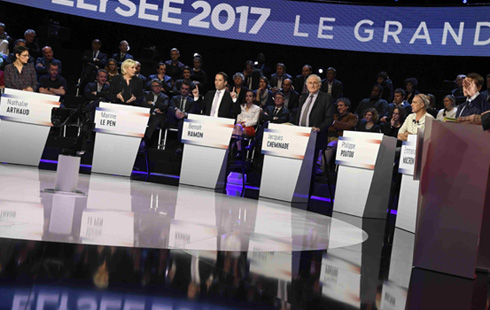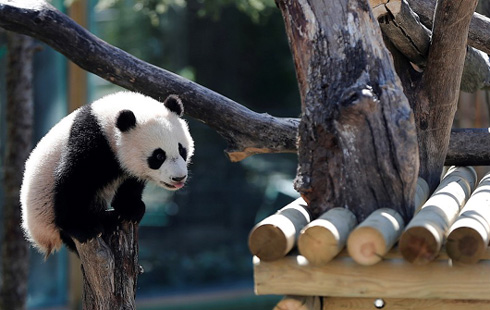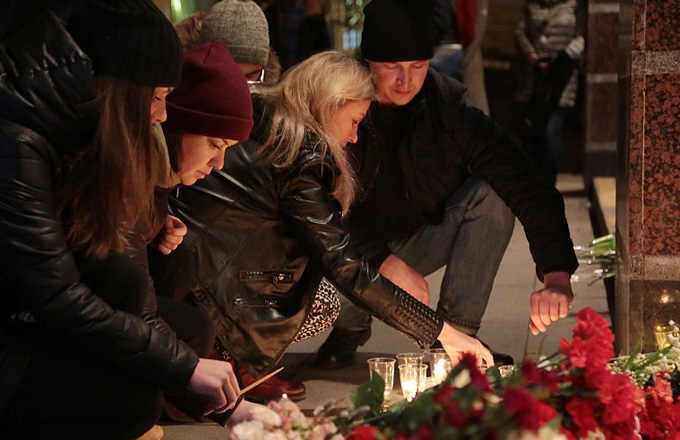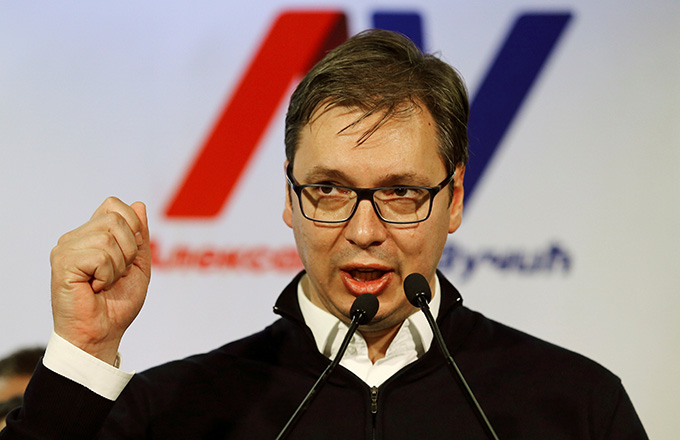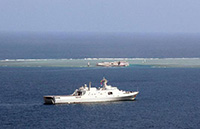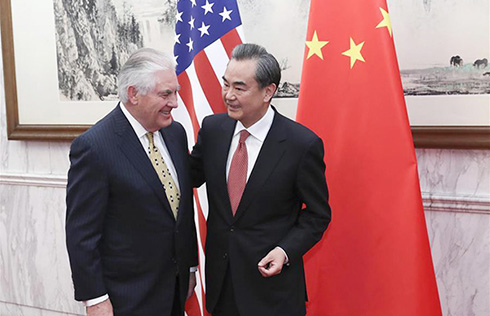Scores reported killed in gas attack on Syrian rebel area
BLAME GAME
Mounzer Khalil, head of Idlib's health authority, said hospitals in the province were overflowing with victims.
"This morning, at 6:30 a.m., warplanes targeted Khan Sheikhoun with gases, believed to be sarin and chlorine," he told a news conference.
Warplanes later struck near a medical point where victims of the attack were receiving treatment, the Observatory and civil defence workers said.
The attack sparked a blame game within the United States.
Trump faulted Obama for not enforcing a 2012 "red line" against the use of chemical weapons and suggested the attack was "a consequence of the past administration's weakness and irresolution."
An Obama spokesman declined comment.
US Secretary of State Rex Tillerson issued an appeal for Russia and Iran "to exercise their influence over the Syrian regime and to guarantee that this sort of horrific attack never happens again."
In contrast, Syrian opposition member Basma Kodmani blamed recent statements by Tillerson and US Ambassador to the United Nations Nikki Haley that suggested the new US administration could live with Assad remaining in power for the time being.
"This is a direct consequence of American statements about Assad not being a priority and giving him time and allowing him to stay in power," Kodmani told Reuters via text, saying the US officials' comments amounted to "a blank check for Assad."
The incident was condemned by a host of leaders, including the president of France, who directly blamed Syrian government forces, and Britain, which said Assad would be guilty of a war crime if his government was proved responsible.
The UN envoy for Syria said the "horrific" chemical attack had come from the air.
A US intelligence official told Reuters the episode "has the fingerprints of a regime attack."
In February, Russia cast its seventh veto to protect Assad's government from UN Security Council action, blocking a bid by Western powers to impose sanctions over accusations of chemical weapons attacks during the conflict.
A series of investigations by the United Nations and the Organisation for the Prohibition of Chemical Weapons (OPCW) found that various parties in the Syrian war had used chlorine, sulfur mustard gas and sarin.
The OPCW said it had begun "gathering and analysing information from all available sources" about the suspected Khan Sheikhoun attack.
Turkey, which backs the anti-Assad opposition, said the attack could derail Russian-backed diplomatic efforts to shore up a ceasefire. Turkey's state-run Anadolu news agency said 15 people hurt in the attack, mostly women and children, had been taken to Turkey.
TOXIC ARSENAL
Idlib province contains the largest populated area controlled by anti-Assad rebels - both nationalist Free Syrian Army groups and powerful Islamist factions including the former al Qaeda-linked Nusra Front.
Idlib's population has ballooned, with thousands of fighters and civilians shuttled out of Aleppo city and areas around Damascus that the government has retaken in recent months as Assad has gained the upper hand in the war.
The United States has also launched a spate of air strikes in Idlib this year, targeting jihadist insurgents.
Following the 2013 attack, Syria joined the international Chemical Weapons Convention under a US-Russian deal, averting the threat of US-led military intervention.
Under the deal, Syria agreed to give up its toxic arsenal and surrendered 1,300 tonnes of toxic weapons and industrial chemicals to the international community for destruction.
UN-OPCW investigators found, however, that it continued to use chlorine, which is widely available and hard to trace, in so-called barrel bombs dropped from helicopters. Chlorine is not a banned substance, but the use of any chemical is banned under 1997 Chemical Weapons Convention, to which Syria is a member.
Reuters




